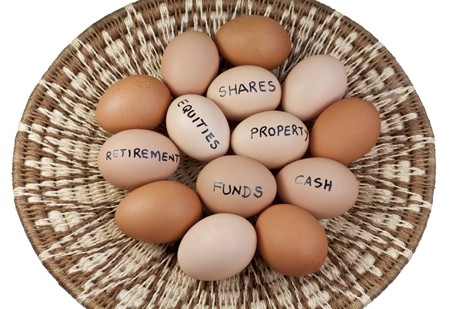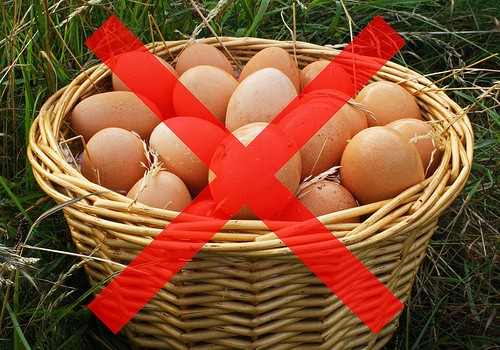Eggs Baskets and Diversification
Post on: 25 Апрель, 2015 No Comment

Recently, correlations across virtually all assets have increased. This means that diversification benefits are far sparser than they were in previous years.
Abraham Bailin
Its almost Easter and many of us have thoughts of eggs and baskets running through our heads. Everyones looking forward to enjoying a little chocolate and some quality time with family and friends. In terms of finance, however, we often speak of eggs and baskets in the context of diversification.
Diversification means spreading your investments among asset classes that are less correlated with one another. You can put some of your money in stocks, some in bonds, commodities or real estate. The idea, of course, is that if one asset class is hit with a large decline the others will either rise or stay the same, cushioning the blow to your overall portfolio.
The Correlation Crunch
I wrote an article called No Respite in Diversification about 18 months ago. In it, I made the case that its becoming increasingly difficult to diversify your portfolio because correlations across almost all asset classes are rising. Recently, Morningstar came out with some data to support this idea in an article entitled A Market Lacking Diversification. (I found it via The Reformed Broker .)
In the article, Abraham Bailin notes that its difficult to empirically pin down an exact reason why more and more asset classes seem to trade in tandem with the S&P 500, but he offers a couple of reasonable possibilities. Real estate investment trusts (REITs) and commodities have traditionally been seen as great diversifiers, since they were not all that correlated to the stock market. In recent years, that has changed. Mr. Bailin posits that access to these markets due to the proliferation of ETFs that track them may be one reason.
Another possible reason for increased correlations may have something to do with the increasing herd mentality of fund managers, many of whom are using similar quantitative models to drive their investing behaviour. The risk-on/risk-off hokey pokey to which weve been witness over the past decade has money managers bailing on just about all asset classes when systemic risk rears its head and then piling back in again when some kind of tentative all clear signal is trumpeted across financial markets.
By the Numbers
Morningstar offers an informative table that examines the change in the correlation of various asset classes to the S&P 500 over the past 10 years:
You can see that correlations to the S&P 500 have increased across all asset types over the past 10 years with two notable exceptions: treasury bonds and gold. The bond indices studied here, with the exception of the high yield index, are more negatively correlated with the S&P than they were 10 years ago, meaning their prices will tend to move in the opposite direction to the broader equity index.
Still, its worth noting that the height of the financial crisis saw extreme risk-off conditions that drove all asset classes including bonds lower. That effect, however, was very short-lived and bonds subsequently resumed their safe haven function. Having said that, I remain cautious on bonds in our own portfolio due to the fact that the bond bull market is very long in the tooth and I think other asset classes (like GICs or CDs) offer more safety for comparable returns.

The Moral of the Story
The data presented by Morningstar doesnt mean you shouldnt make every effort to diversify your holdings. It just means its getting harder to do so, and you have to be careful about using canned advice thats well past its due date. You can no longer expect REITs or commodities or foreign equity indices to smooth out your portfolios performance.
Mathematically, bonds and gold are still pretty good at providing that function, although Im sure some of us could make a case for why we may not want to hold very much of either of those asset classes. I mentioned briefly why Im not keen on devoting a significant allocation to bonds, and the vehement, and often vitriolic debate surrounding gold will likely continue for many years to come.
The moral of the story: Be careful where you put your eggs.
Heres hoping you find some time this weekend to forget about the kind of eggs I wrote about today and devote some serious effort to enjoying some of the things that make life worthwhile like family, friends, and chocolate!
Your comments are always welcome.














